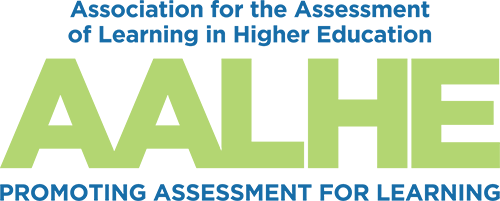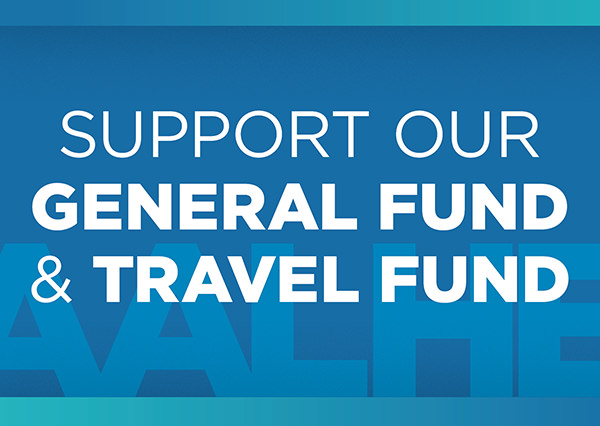AALHE 2023 Conference Call for Proposals

The 2023 Call for Proposal Window Has Closed.
The Association for the Assessment of Learning in Higher Education (AALHE) invites proposals from the assessment community for the 2023 Assessment Conference. Both AALHE members and non-members may submit proposals for the AALHE 2023 Conference.
Conference Theme
The theme of the 2023 AALHE Conference is Assessment Narratives, Mysteries, & Myths. The theme is inspired by the deep significance of storytelling in Louisiana, across diverse geography and demographics. These stories, whether tall tales or touchdown glory, serve to bring people together. Just as important, a story should be told in a way that honors its message and style. We invite proposal authors to lean into the spirit of storytelling. What story do you want to tell your colleagues about assessment? Whose story will you tell, and how will you honor those who are assessed? Will you share your story through dialogue, with no technology, or will you create the most stunning visualizations to dazzle your audience?
Timeline
- Call for Proposals Open: January 17, 2023
- Proposal Submissions Closes: March 5, 2023
- Notification to Proposal Authors By Email: Mid-March 2023
- Proposal Authors Acceptance Confirmation Due: One week after email notification
- Presenter Registration Required: April 28, 2023
- Session Materials and Presenter Profiles Due: May 19, 2023
Session Types
The conference curriculum will have seven session types, and proposal authors are invited to select the session type they believe best aligns with their proposed session format and content.
- Dialogue (60 minutes) A dialogue session is an engaging session that provides time for colleagues to discuss a topic or an emerging issue relevant to the assessment of learning in higher education through the iterative sharing of expertise and experiences. In this interactive session, facilitator(s) assist the group in examining topics and strategies for moving forward, given the professional reality and expertise of each individual in the room.
- Panel (60 minutes) Panels are structured conversations about a specific issue or topic. Panels specify a current or emerging issue to be addressed, establish an initial set of questions, and are moderated. These sessions also include an opportunity for questions from attendees to expand upon panelists' responses.
- Paper Session (60 minutes) The authors present scholarly research in the form of a paper. The paper can present emerging theories, research conclusions, and/or research into practice on topics related to the conference theme or assessment of student learning. Co-authored multi-disciplinary or interdisciplinary work is encouraged. An outline of the paper must be submitted.
- Pre-Conference Workshop (3-hour half day) A pre-conference workshop is a working session that engages participants in developing skills in specific models and strategies in assessment practice. Pre-conference sessions provide attendees the opportunity to extend their knowledge and skills with additional time for interaction. Pre-Conference sessions occur prior to the start of the conference.
- Pre-Conference Workshop (6-hour full day) A pre-conference workshop is a working session that engages participants in developing skills in specific models and strategies in assessment practice. Pre-conference sessions provide attendees the opportunity to extend their knowledge and skills with additional time for interaction. Pre-Conference sessions occur prior to the start of the conference.
- Skill Development Workshop-Theory to Practice (90 minutes) Skill development sessions provide opportunities for participants to bridge theory with practice. These are working sessions that engage participants in developing skill in addressing specific opportunities and challenges in the assessment of learning, and in working together to develop skills in specific models and strategies in assessment practice.
- Poster Session The poster session provides opportunities for a more casual and interactive way for participants to showcase ideas still in formation, research, or innovative practices, among others. All posters will be displayed at a specific time during the conference, and presenters must be available to discuss their work with attendees.
Session Tracks
The conference curriculum will have four tracks, and proposal authors are invited to select the track they believe best represents their content.
- Narratives, Mysteries, and Myths: Assessment practitioners are skilled in storytelling, resolving mysteries, and debunking myths. This track focuses on how we communicate findings, help colleagues discover meaning, and dispel concerns about engaging in assessment.
- Professional Development: Providing capacity-building opportunities for and developing relationships with faculty, staff, and students in learning outcomes assessment. This track focuses on developing educational opportunities and creating a supportive culture that engages in outcomes assessment to improve student learning.
- Inclusion: Practices that engage diversity, equity, and inclusion in the context of student learning assessment. This track focuses on advocating for equity through assessment practices.
- Assessment Across the Institution: Classrooms and libraries and internships, oh my! Assessment is an important part of work across the institution, from Institutional Effectiveness offices to Student Affairs. This track focuses on innovative assessment practices across all institutional contexts.
Session Audience
The conference curriculum will feature three target session audiences to support attendees in identifying conference content that meets their needs. Proposal authors are invited to select the target audience(s) they believe best represents their content.
- New Professionals - Sessions for this audience are designed to serve attendees who are entry-level assessment professionals, faculty who may be new to the assessment conversation at their institution, and graduate students. Sessions will include definitions and context that may not be necessary for those with more experience in the field. While the subject matter may be quite complex, the session assumes a beginner-level understanding of assessment and assessment practices.
- Experienced Professionals - Sessions for this audience are designed to serve mid-level and above assessment professionals; faculty assessment liaisons with departmental or institutional assessment experience; researchers interested in assessment subject matter; and graduate students with assessment experience. Session content assumes an active assessment vocabulary and at least some experience with assessment practice. The subject matter will naturally be more complex than introductory sessions.
- All Audiences - These sessions are designed to serve attendees across a range of experiences and expertise. Session presenters make no assumptions about the audience save for an interest in assessment. Assessment language or appropriate vocabulary may be introduced, but the subject matter will quickly dive deeper than in introductory sessions. These sessions are designed to provide opportunities for collaborative thinking and interaction across levels of experience.
Session Tags
The conference curriculum will include seven tags to support attendees in identifying conference content that aligns with their interests. Proposal authors are invited to select the tag they believe best represents their content.
- Scholarship/Research
- Curricular
- Co-Curricular
- Practice/Application
- Data
- Community Colleges
- Minority Serving Institutions
A Note About Encouraged Creativity
In alignment with our theme and conference location, we encourage proposal authors to be creative with ideas and collaborations. If there’s an assessment mystery you’ve solved, now’s the time to share! Always wanted to present with people from different institutions? Put your networking hat on and reach out!
Resources Available to Proposal Authors
- Proposal Worksheet: provides a document where proposal authors can draft responses to fields you must enter on the electronic proposal submission form. Note all proposals must be submitted through the electronic proposal submission form at https://easychair.org/conferences/?conf=aalhe2023 to be considered for the 2023 Conference.
- Reviewer Rubric: provides the criteria by which reviewers will evaluate submitted proposals
Responsibilities of Authors of Accepted Proposals
Session presenters with accepted proposals will receive more detailed information about the responsibilities below in their session acceptance notification. Presenters will also receive a slideshow template and tips for accessible presentations and handouts.
- Registration for Conference:
- All session presenters with proposals accepted must register for the conference no later than April 28, 2023.
- All session presenters are responsible for their own conference registration fees, travel, and lodging expenses.
- Completion of Presenter Profile: All session presenters with accepted proposals must complete a presenter profile on the conference platform including: presenter name, title, institution, bio, and optional headshot photo by May 19, 2023.
- Upload of Presentation Materials: All session presenters with accepted proposals must upload presentation materials to the conference platform by May 19, 2023.
Submission Instructions
The submission window has closed. All proposals needed to be submitted via the EasyChair online proposal submission and review portal.
You should have saved your Submission ID # and Password to access and track your submission and the results.
Questions
If you have any questions about the AALHE 2023 Conference Call for Proposals or the conference experience, please email [email protected] |


